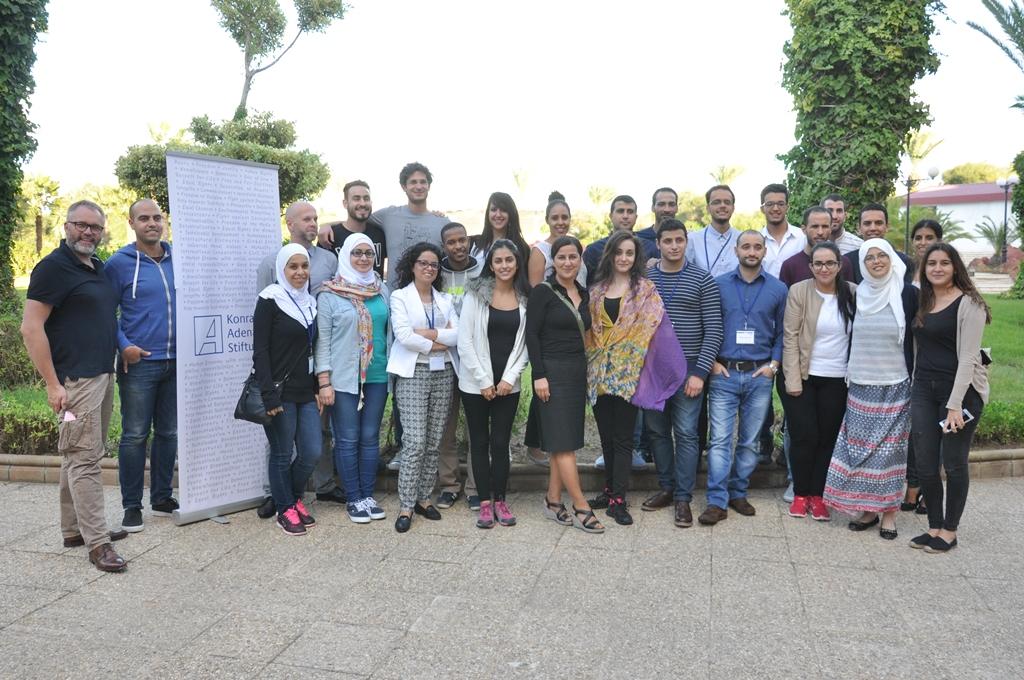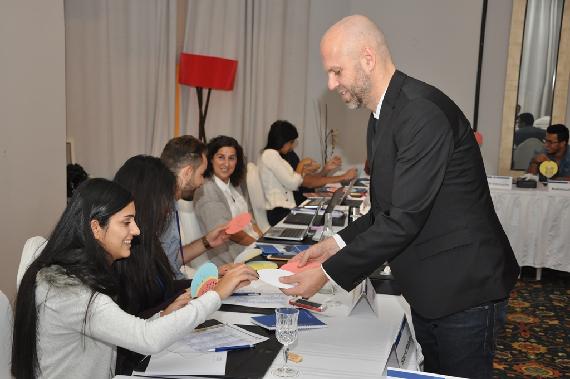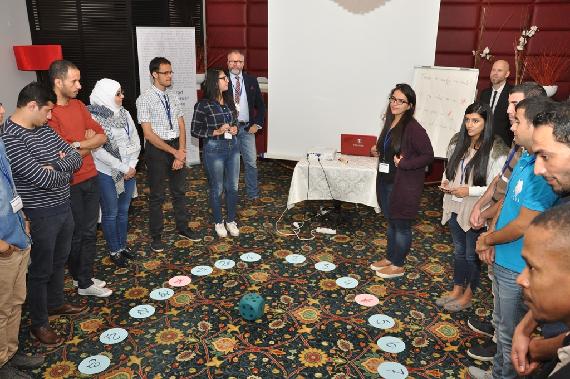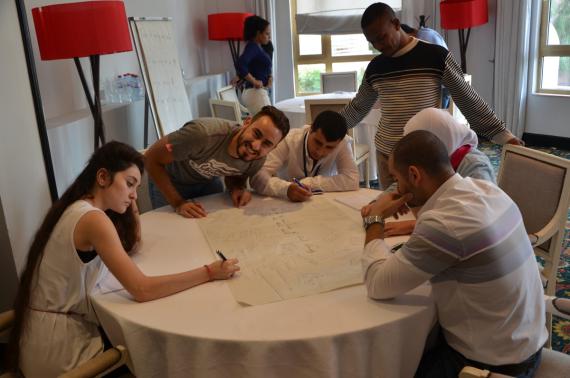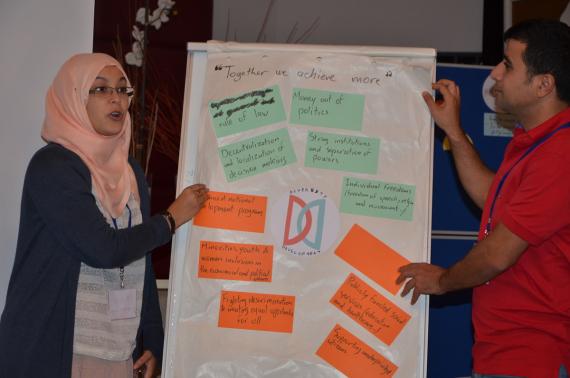MENA Leadership Academy was launched in March 2016 with a first training in Madrid gathering young participants from different countries and backgrounds. From 28 October to 2 November 2016, the group met again in Tunis to benefit from a second training session which aimed to enhance their negotiation and communication skills. During five days, they experimented with different methods and simulations designed by the trainers Dr. Alexander Buch and Mr. Holger-Michael Arndt from the CIVIC Institute.
In her welcome speech, Dr. Canan Atilgan, Director of the Regional Office South Mediterranean of the KAS, emphasized the importance of communication and negotiation skills for civil society actors in advocating for their causes. These key competencies can make the difference between a failure and a successful initiative when dealing with media, partners or volunteers.
Dr. Atilgan furthermore encouraged the participants to build strong relationships between civil society actors from different MENA countries to exchange ideas and expertise. As the region shares common challenges, she urged them to benefit from each other’s experiences and knowledge. Furthermore, she encouraged the participants to act as multipliers in their respective countries in order to increase the number of beneficiaries of this training from 25 to hundreds of young women and men who are willing to develop themselves and their communities.
The trainers and the “Micro-Methods”
The training was led by Dr. Alexander Burka, the Managing Director of the CIVIC Institute for International Education based in Vienna, and Mr. Holger Michael Arndt, the Managing Director of the organization’s branch in Düsseldorf. Both of them have extensive experience in trainings with civil society organizations, public administrations and universities. In their work they cover a wide range of themes such as intercultural communication and competencies, corruption prevention and communication and negotiation.
For MENA Leadership Academy, they designed specific simulations based on interactivity and creativity. The so-called “Micro Methods” are a series of games, exercises and simulations which stimulated the participants and allowed them to develop the desired skills. By writing, drawing or acting they had the opportunity to express themselves in different ways. This inclusive process allowed each participant to share his or her thoughts in the way he or she was most comfortable with. The silent discussion based on writing for example allowed shy participants to have a more active role within the groups. Through this range of methods the participants could see civil society from different perspectives and clarify the relevant terminology. The trainers particularly focused on developing the participants’ listening skills which are a key ability for civil society actors who are supposed to detect the major issues their communities are facing by listening to them.
The simulation was the main component of the training. During two days, the participants played a role as civil society actor, politician or journalist. After discovering their new personality, they had to introduce themselves and present their vision, priorities and strategies. Subsequently they had to organize a series of meetings with the different groups to see whether they have common grounds and can potentially create coalitions to elect a president and a municipal parliament.
Project Presentations
During the training, the participants had the opportunity to present their new initiatives following the guidelines they had received in the last training to help them in writing a project proposal. 18 projects were presented, commented on and discussed with the KAS director and the participants. Most of the initiatives aim to promote youth inclusion in the economic sphere and the political decision making process through trainings, councils or web platforms. Other initiatives covered themes such as local governance, youth political integration, culture and social entrepreneurship. As many participants shared interest for the same topics, four working groups where created in order to foster collaboration for the launch of common initiatives.
Meeting with Mr. Achref Aouadi from I Watch Tunisia
Mr. Aouadi is the founder and President of I Watch, one of the prominent Tunisian NGOs established after the revolution. I Watch works mainly on two axes: transparency and anti-corruption. It seeks to facilitate access to information and works on the democratization of the police and guaranteeing a smooth political transition in the post-revolution period. Mr. Aouadi was invited to share his experience with the participants and to give his vision on the situation of civil society in Tunisia. Mr. Aouadi encouraged the participants to be creative and to try to launch small initiatives that may raise awareness or impact the public opinion. He further advised to not forget the field work; as many civil society actors are only working on the internet, it is important not forget to act in the real world to have an impact on their communities. The participants were impressed by the achievements of I Watch Tunisia and the commitment of Mr. Aouadi despite all the obstacles and the pressure he faced while combatting corruption.
After five days of intensive training the program ended with a visit to the Bardo Museum. The next step will be in Madrid where the participants will meet again for a third training session in March 2016.
About this series
The Konrad-Adenauer-Stiftung, its educational institutions, centres and foreign offices, offer several thousand events on various subjects each year. We provide up to date and exclusive reports on selected conferences, events and symposia at www.kas.de. In addition to a summary of the contents, you can also find additional material such as pictures, speeches, videos or audio clips.
Order details
erscheinungsort
Tunisia Tunisia




